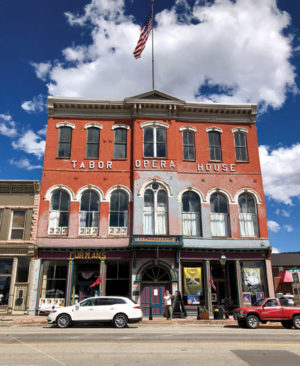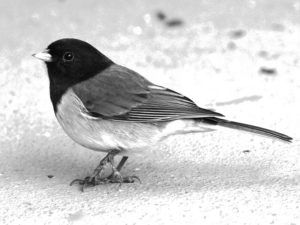By Ed Berg
Winston Churchill is said to have described human history as, “… just one damned thing after another.” He could have been a farmer. Last month’s installment included complaints about partners, weather and water, which must be familiar to any farmer or rancher and can only make for boring reading. I’d gotten myself and my wife into the quasi-legal medicinal hemp industry, with its tangle of anti-social laws built on eighty years of propaganda and prejudice. I was having some self-doubts. I was also trying to learn about farming in the marginally farmable climate of our high-altitude desert valley, with no knowledge of the hemp crop or of farming in general. My admiration for the perseverance of the few surviving Upper Arkansas Valley ranchers kept growing as our savings dwindled.
We dissolved our relationship with the “expert” partner in the middle of the 2017 growing season. I thought I could push through to the harvest on my own smarts and energy. That would turn out to be a costly presumption.
You can’t make money growing medicinal hemp. Sooner or later, you have to sell it. Fortunately, the plant can be monetized in many forms: seeds, seedlings, clones, dried plant material (“biomass”), dried flowers (“bud”), concentrated extracts of many kinds, or in a variety of consumer-packaged goods. Our 2017 crop weighed 45 pounds after we dried and rough-trimmed it. We couldn’t sell such a small quantity in the form of biomass or bud. We decided to see what else could be done to add value to the crop. We found an extraction service that would take our tiny batch, but they had to charge $45 a pound to put the bud through alcohol extraction. We liked the idea of using good old drinkable ethanol instead of a petrochemical solvent that our bodies don’t know how to metabolize.
[InContentAdTwo]
Our 45 pounds of rough-trimmed bud yielded 4 ½ pounds, or two kilos, of tarry full-spectrum extract, which was delivered in two unimpressive one-quart Mason jars. A summer-full of hard work and stress, condensed into two mason jars. Oof. But the price per kilo was about $5,000! Wowzer! Our two quarts were worth $10,000! However, when we tallied up our expenses, we would still be in the red by thousands of dollars. True, we had a lot of shiny new hardware we could use again, but there had to be a better way to reduce the pain of acquiring wisdom. A quick scan of CBD hemp websites showed infused oils and salves selling for around $35 per ounce, depending on the CBD content, and the ingredients were not expensive. After a little arithmetic we decided to do some cooking.
Arithmetic can be like Superman, leaping over towering assumptions in a single bound … and landing God-knows-where.
Here’s the seductive math: one kilogram is one million milligrams! If we put 250 milligrams of our extract into a jar of salve, each kilo of extract would produce 4,000 sale units. We estimated the materials would cost about $10 per bottle. Even priced at an affordable $25 per bottle, our two kilos of extract would net $120,000, more than enough to pay back those first-year costs.
We wanted to sell a high-quality product. After all, our first customers would be our neighbors, and we wanted to build our business on community values, not hype. The results of our first sales in December 2018 were gratifying, to say the least. Our customers experienced relief from pain and inflammation, just like the online medical and consumer reviews claimed. Some of them experienced relief only after repeated applications of the salve or oil, but there were some walking-on-water results too, with occasional tears of joy. Being able to provide that kind of help to people in our community was enough motivation to try another year of farming.
But selling a dozen bottles a week was a slow economic death. We needed to boost our income more than tenfold to be able to use up our precious two kilos of extract in one year. We enlisted the help of a website designer, and thus began our introduction to E-commerce. It would lead us through a year of costs and delays that would bring us to today, with our third website designer, another year of harvest, more red ink in our accounting spreadsheet, eight kilos of extract in our freezer, and still no online sales.
Not an auspicious beginning for a new business.
In April this year there were hundreds of websites advertising CBD products and touting their many benefits. There were dozens of YouTube videos on how to start a CBD business. But the USDA, FDA and FDIC had awakened to the reality that legalizing industrial hemp would create the need for regulations. This threw the banks and credit card services into panics. We lost two checking accounts with local banks, one that we’d had for fifteen years. Another of our community banks wanted us to carry a $50,000 minimum balance. Then the credit card sales service on our just-launched website canceled our account, making it nearly useless. This has been a common experience this summer among startup small CBD hemp businesses.
I still haven’t mentioned the rain and floods of 2017, the drought of 2018 and the cost of commoditized water in the west.
I was about to close on these sour notes, but in the last month scores of court cases have been found in favor of plaintiffs against pharmaceutical companies and physicians who are amassing fortunes by selling addictive drugs. Attorneys at Federal, State, and County levels are joining the melee, which is the best news for the medicinal hemp industry since the plant was made illegal in 1937. Did the lawsuit industry suddenly make a quantum leap in collective consciousness? Or did suing a drug manufacturer just become as lucrative as working for one?
Should I quit farming and go to law school? Or apply for a job with one of our community banks? Stay tuned, as we continue to learn that life is more than a series of experiences.



Hello! I grew up in Salida on a family produce farm. Yes, farming is tons of hard work for little pay. I now live on a farm in Berthoud, CO and the hemp business is thriving in our area. One option we have is to lease our land with our water rights to a company that wants to grow hemp. One company we are hearing much about and who is leasing alot of land is First Choice out of Salida. Do you know of them? We can’t find a listing for First Choice. The people who seem to be happiest up here are the ones leasing their land and then collecting a check. We very much enjoyed reading your tale and sharing your story. Thank you, patty
Patty (or is it Parry?), the Martillaro name is familiar. About 14 years ago, I met a Martillaro couple at Hatties bar. I think they lived just east of Maysville.
I believe you mean First Crop. They are located in Santa Fe but have connections in Salida. We worked with them to some extent this year growing a test plot for one of their seed varieties, in addition to growing our own. First Crop works with first-year hemp growers, helping to secure quality seeds, advising about cultivation and harvest practices, and providing access to crop purchase and extraction services if the grower wants to use or sell hemp extract. To my knowledge, they do not lease any farms, but contract with growers to buy their crop futures.
I’m not surprised that the best experiences have been by leasing the land to experienced growers. We will be doing that next year, but participating with the grower throughout the process to get some much-needed knowledge. I heard some preliminary statistics about the 2018 hemp planting in Colorado: 80,000 acres registered, 50,000 planted, and only 20,000 acres of salable crops, largely due to testing above 0.3% THC. It’s a new crop, so the experience base is almost non-existent.
If you wish more information, feel free to contact me at info@salidahempcompany.com.